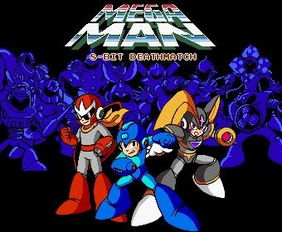
8-bit Bytes: A Comprehensive Guide
Understanding the intricacies of 8-bit bytes is essential for anyone interested in computer science, digital electronics, or simply the fascinating world of technology. In this article, we delve into the details of what 8-bit bytes are, how they work, and their significance in various aspects of computing.
What is an 8-bit Byte?

An 8-bit byte is a unit of digital information that consists of 8 binary digits, or bits. Each bit can be either a 0 or a 1, representing the two fundamental states of digital data. When combined, these bits can represent a wide range of values, from 0 to 255, which is the maximum value an 8-bit byte can hold.
How Do 8-bit Bytes Work?

8-bit bytes work by using binary arithmetic to represent and manipulate data. Here’s a breakdown of how it all works:
| Bit Position | Value | Description |
|---|---|---|
| 7 | 128 | Sign bit (for negative numbers) |
| 6 | 64 | |
| 5 | 32 | |
| 4 | 16 | |
| 3 | 8 | |
| 2 | 4 | |
| 1 | 2 | |
| 0 | 1 |
In this table, you can see that each bit position corresponds to a power of 2. By combining these bits, you can represent any number from 0 to 255. For example, the binary number 11000001 represents the decimal number 193.
Significance of 8-bit Bytes

8-bit bytes have played a crucial role in the development of computing technology. Here are some key points highlighting their significance:
-
Early Computers: In the early days of computing, 8-bit bytes were the standard for storing and processing data. Computers like the Commodore 64 and the Apple II were based on 8-bit architecture.
-
Memory and Storage: 8-bit bytes are used to store and retrieve data in memory and storage devices. This is because they provide a balance between storage capacity and processing power.
-
Graphics and Sound: 8-bit bytes are essential for handling graphics and sound in early video games and computer applications. They allow for a limited but still impressive range of colors and sound effects.
-
Networking: 8-bit bytes are used in networking protocols to represent data packets and ensure efficient communication between devices.
Advantages and Disadvantages of 8-bit Bytes
While 8-bit bytes have been instrumental in the development of computing technology, they also have their advantages and disadvantages:
-
Advantages:
-
Compact: 8-bit bytes are compact, allowing for efficient storage and processing of data.
-
Cost-effective: They are cost-effective to produce and use in various computing devices.
-
Compatibility: 8-bit bytes are compatible with a wide range of devices and applications.
-
-
Disadvantages:
-
Limited Storage Capacity: 8-bit bytes can only represent a limited range of values, which can be a limitation in certain applications
-





